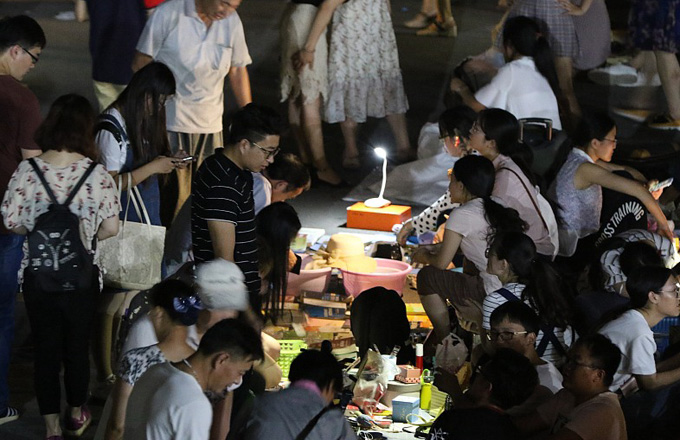Archives help families save everyday treasures
Everyone owns something with sentimental value: a movie ticket yellowed with age, a report card from primary school, or a first love letter. The Jiangsu Provincial Archives Bureau is encouraging residents to collect such items, offering free filing boxes and guidance on how to preserve them.
The bureau has even developed free software for residents to manage and digitize their documents.
With the help of the bureau, 64-year-old Xu Xiaozhen in Nanjing, capital of Jiangsu, has sorted his belongings into 20 archive boxes and stowed them away on top of his bookshelves.
The oldest document is a letter he wrote to his father in 1961. "I was in primary school, while Dad worked away from home," Xu recalled. At that time, educated young people like Xu's father were encouraged to go to poor areas. He wrote the letter just before Spring Festival on a page torn from his school workbook.
"You should take good care of yourself while alone," Xu wrote, adding that the family had bought two ducks for the holiday. Half a century later, his father gave the letter back to him.
Xu also kept a letter from his workplace required for his wedding trip; paper cuttings made for the wedding; and his father's graduation certificate. Xu, a retired judge, said his most valuable collection consists of meeting notices from the past decade.
"In one year, we had to attend more than 100 meetings," he said. "It was sheer formalism. I knew it was going to change. Look, it's much better now."
"As time passes, people's memories often fade," Xu said. "What I have preserved are not just old things, but part of history."
According to the bureau, about 2,000 households in Nanjing have consulted it about starting their own family archives. "We plan to add another 1,000 households by the end of this year," said Cui Liping of the bureau.
While most of the files are stored by residents at home, they may keep valuable ones at the bureau. The files include diaries, letters, manuscripts, photographs, tapes and diplomas.
"Documents from each family reflect the changes they have gone through over the decades, while the collections from many households together reflect the development of society," Cui said.
He Xingyun, 84, began keeping financial accounts for her family in 1958, jotting down their income and expenditures every day. The 22 books hold records ranging from 0.02 yuan for a needle to 600,000 yuan ($87,800) for a house.
In the past 59 years, the price of a steamed bun has risen from 0.20 yuan to 1 yuan. "Thanks to the diary, we have never quarreled about financial issues," He said. "The books offer a small insight into China's economic growth."
Xu Yun, a retired teacher in her 70s, and her daughter and granddaughter have all kept detailed records of their daily lives. Their diaries have been published as a set, showing the development of women's role in society from generation to generation. "Through the diaries, I would like to illustrate, particularly to our descendants, the loyalty and love in our family," Xu said.
Xu Xiaozhen has filed leaflets published during the "cultural revolution" (1966-76) at the bureau. He hopes his son will preserve the rest of his collection in the future.
"I don't expect that everything will be handed down," he said. "Later generations may lose some things, but also add other things to make the family archives timeless."
Of all the things he has saved, he hopes that an article written by his father in about 1960 will be passed on to his descendants. In the article, his father questions a frenetic steel production campaign that was later acknowledged as unrealistic.
"He was honest and outspoken throughout his life, which I hope the younger generations can learn from," Xu said.
"With the family archives, we are not only passing on memories, but also the characteristics of our ancestors."



















